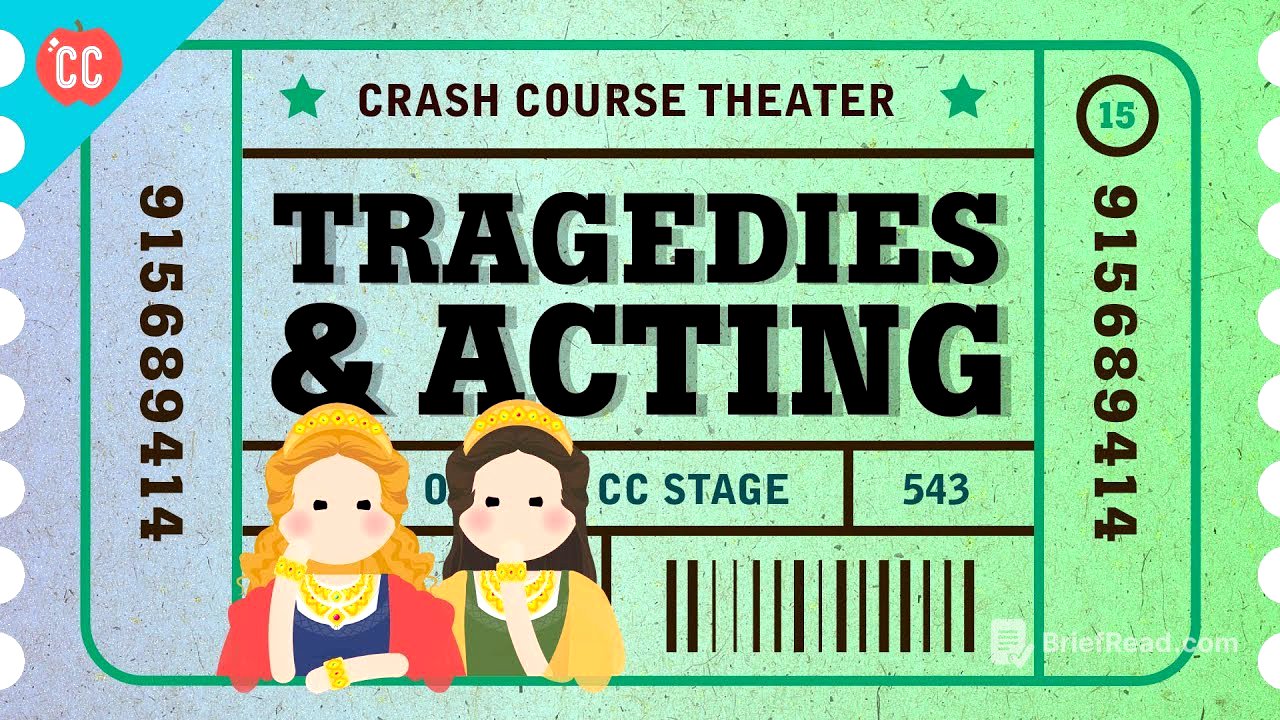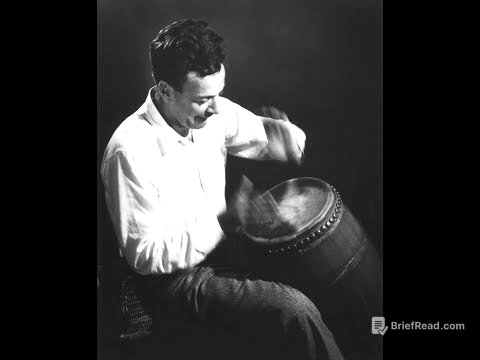TLDR;
This Crash Course episode explores Shakespearean tragedy, focusing on the conventions of Elizabethan drama and the play "King Lear." It covers the organization and practices of acting companies, the staging of plays, and the key elements that define Shakespearean tragedy, including the role of fate, free will, and the complex psychological interiority of tragic heroes. The episode also contrasts Shakespearean tragedy with Greek tragedy, highlighting the presence of humor and Christian morality in Shakespeare's works.
- Elizabethan acting companies were organized under royal patrons and performed in purpose-built playhouses.
- Shakespearean tragedies blend elements of Greek tragedy, medieval morality plays, and earlier Elizabethan forms.
- Shakespeare's tragic heroes are complex characters with internal conflicts, setting them apart from contemporaries.
Introduction to Shakespearean Tragedy [0:03]
The episode introduces Shakespearean tragedy, contrasting it with Greek tragedy's offstage violence by highlighting the on-stage deaths and dark themes present in Shakespeare's plays. The discussion sets the stage for an exploration of "King Lear" and the staging conventions of Elizabethan drama, including acting styles and the use of soliloquies.
Elizabethan Acting Companies and Practices [0:53]
Due to vagrancy laws, actors formed companies named after royal patrons, performing in playhouses and touring when necessary. These companies consisted of shareholders, boys (playing female roles), hired players, musicians, and stagehands. Actors specialized in roles and had to memorize lines quickly, often learning a new play in the morning and performing an old one in the afternoon. Actors didn't receive full scripts, only their lines and cues, emphasizing recitation over deep thematic analysis.
Staging Conventions of Elizabethan Drama [3:13]
Elizabethan playhouses were smaller versions of Greco-Roman amphitheaters, featuring an acting area, tiring house, seating tiers, and a pit for groundlings. Performances occurred in the afternoon to utilize natural light, and actors projected their voices to be heard over the audience. Stages were minimally decorated, relying on costumes and props for visual interest. Special effects were limited but sometimes involved fire, posing a risk in wooden theaters.
Defining Shakespearean Tragedy [4:14]
Shakespearean tragedy is a genre influenced by Greek tragedy, medieval morality plays, and Seneca. The classification of Shakespeare's plays into comedies, histories, and tragedies was a posthumous decision. A Shakespearean tragedy is defined as a play that ends unhappily and does not focus on a recent king. These plays mix prose and verse, feature action, and explore conflicts between fate and free will. They also incorporate elements of reversal, recognition, and hamartia.
Key Elements of Shakespearean Tragedy [6:06]
Shakespearean tragedies include humor, often through fool characters, and incorporate Christian moral landscapes, where characters consider the afterlife implications of their actions. Shakespeare's innovation lies in creating complex tragic heroes with internal conflicts, setting him apart from contemporaries. Unlike other Elizabethan revenge tragedies, Shakespeare's heroes retain their humanity, grappling with the morality of their actions.
Analysis of "King Lear" [7:56]
"King Lear" is set in a fantastical version of ancient England. The plot involves Lear's decision to retire, his rejection of Cordelia, and the subsequent descent into madness and chaos. The play features betrayals, violence, and the deaths of nearly all major characters. Lear's initial mistakes lead to his suffering, but he is portrayed as a sympathetic figure who regrets his decisions. The play withholds recognition, leaving the audience to question whether it is better to live with comforting illusions or face harsh truths.









